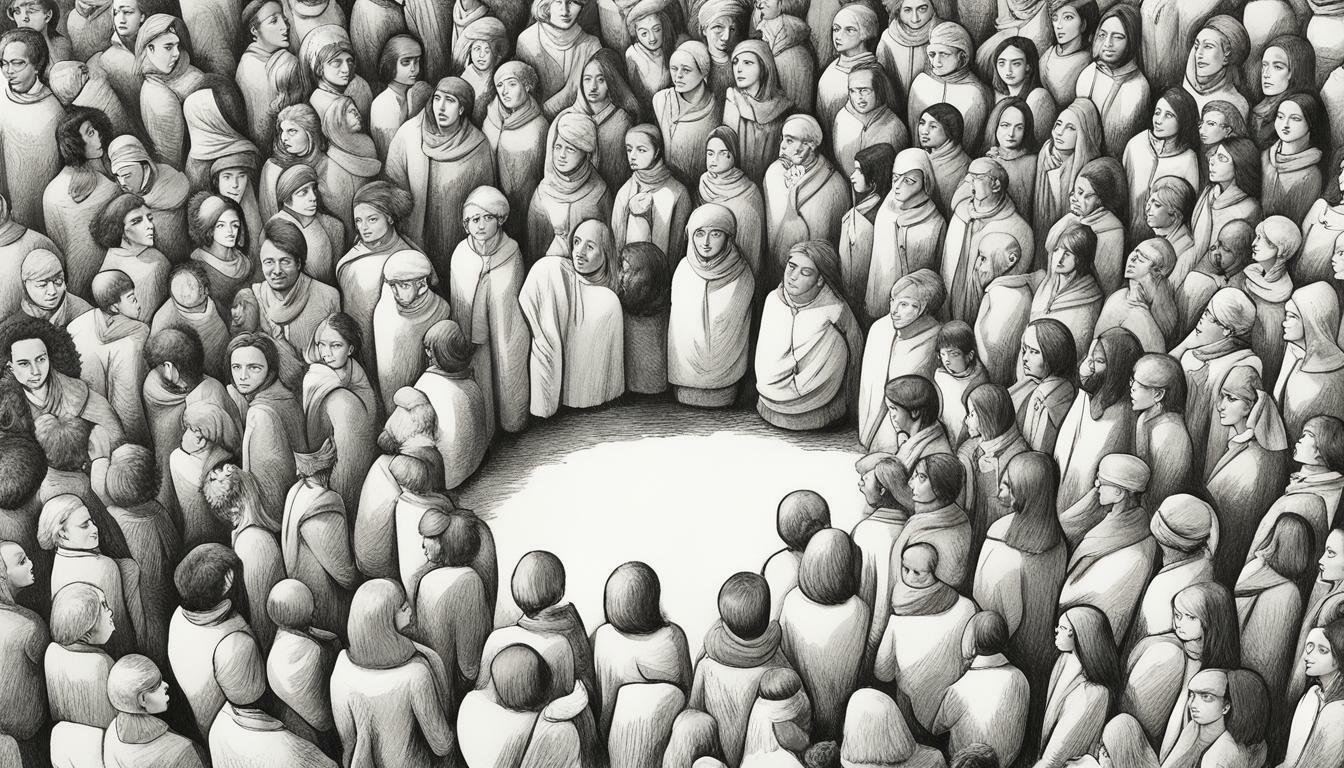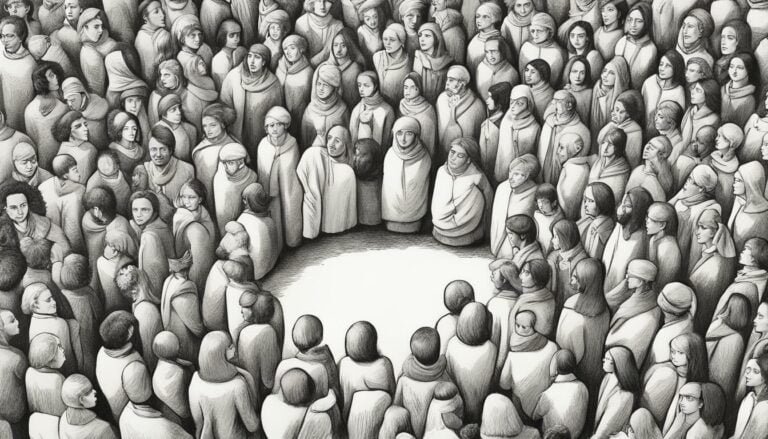
Self-awareness is a vital component of personal growth and development. It involves understanding one’s thoughts, emotions, values, and behaviors and how they impact oneself and others. Unfortunately, not everyone possesses self-awareness, and this lack of self-awareness can have negative consequences on individuals and their relationships.
In this article, we will explore the signs of a lack of self-awareness, its impact on individuals and their relationships, and techniques for developing self-awareness. Furthermore, we will also provide real-life stories and actionable tips to help individuals recognize their lack of self-awareness and cultivate a more self-aware and fulfilling life.
Key Takeaways:
- Self-awareness is essential for personal growth and development
- People with no self-awareness can suffer from skewed self-perception and be oblivious to their own actions
- A lack of self-awareness can lead to misunderstandings and conflicts, hinder effective communication and empathy
Signs of Lack of Self-Awareness
Personal growth and self-improvement require a deep understanding of oneself. However, individuals with no self-awareness may perceive themselves in a way that does not reflect reality. These individuals may be completely oblivious to their actions, leading to misunderstandings and conflicts with others. The signs of a lack of self-awareness are often subtle but can have a significant impact on personal and professional relationships.
Signs of Lack of Self-Awareness
| Signs | Description |
|---|---|
| Defensiveness | Individuals with no self-awareness may be defensive when receiving feedback or criticism, refusing to acknowledge their faults. |
| Lack of empathy | They may struggle to understand the perspectives and emotions of others, leading to misunderstandings and conflicts. |
| Blaming others | They may blame others for their mistakes or shortcomings, failing to take responsibility for their actions. |
| Difficulty with self-reflection | Individuals with no self-awareness may struggle with introspection and self-evaluation, making personal growth and development challenging. |
Recognizing these signs is the first step in cultivating self-awareness and improving one’s relationships. It requires the ability to perceive oneself accurately, acknowledging strengths and weaknesses, taking responsibility for one’s actions, and being open to feedback and new perspectives.
It is important to note that a lack of self-awareness is not a permanent condition and can be improved with effort and practice. By taking steps towards greater self-awareness, individuals can enhance their personal growth and development, strengthen their relationships, and achieve their goals.
Impact of Lack of Self-Awareness
A lack of self-awareness can have detrimental effects on individuals and their relationships. When someone is unaware of their behavior or how they come across to others, misunderstandings and conflicts can arise. In addition, lacking emotional intelligence can hinder effective communication and empathy, making it difficult to establish and maintain meaningful connections with others.
Take, for example, the case of Tom, who had no idea how his negativity was affecting his wife, Jane. Tom constantly complained and criticized Jane for small things, but never realized the impact of his behavior on her. Jane tried to talk to Tom and point out how his negativity was causing her stress and anxiety, but he refused to listen and dismissed her concerns. Eventually, their marriage ended due to Tom’s inability to recognize the impact of his behavior on their relationship.
Another example is Sarah, who was completely oblivious to her colleagues’ feelings and was often regarded as selfish and inconsiderate. She would dominate meetings, interrupt others, and never asked for feedback. As a result, Sarah’s colleagues began to resent her and avoided working with her. Sarah was completely unaware of the negative impression she was making and was shocked when her boss called her out for her behavior.
These examples illustrate the impact of lacking self-awareness on personal and professional relationships. Being unaware of one’s behavior can lead to misunderstandings, conflicts, and even the breakdown of relationships.
Furthermore, a lack of self-awareness can also hinder personal growth and development. It is essential to recognize our own strengths and weaknesses in order to identify areas for improvement and to set goals for ourselves. Without self-awareness, we may struggle to make progress in our personal and professional lives, as we are unable to identify the behaviors or habits that are holding us back.
Overall, the impact of lacking self-awareness can be extremely damaging to both individuals and their relationships. It is essential to recognize the importance of self-awareness and to strive for greater insight into our own thoughts, feelings, and actions.
Developing Self-Awareness in Others
Helping others develop self-awareness is an important aspect of personal growth. It requires understanding the root causes of their lack of introspection and encouraging them to engage in self-exploration. Here are some tips and strategies for developing self-awareness in others:
- Encourage mindfulness: Encourage the person to be present in the moment and observe their thoughts and feelings without judgment. This can help them gain insight into their thought patterns and emotional reactions.
- Ask thought-provoking questions: Ask open-ended questions that encourage the person to reflect on their experiences and beliefs. Examples include, “What did you learn from that experience?” or “How do you think others perceive you?”
- Seek feedback: Encourage the person to seek feedback from others, as this can help them gain insight into their blind spots and areas for improvement.
- Challenge assumptions: Help the person challenge their assumptions and beliefs about themselves and the world around them. This can help them gain a more accurate self-perception.
Remember that developing self-awareness is a process, and it may take time for the person to fully embrace self-reflection. Be patient, supportive, and non-judgmental as they work towards greater self-awareness.
Developing Self-Awareness in Oneself
Developing self-awareness is critical for personal growth and achieving success in life. It helps individuals understand their strengths and weaknesses, and identify areas for improvement. Here are some practical tips for cultivating self-awareness:
- Practice self-reflection: Take time each day to reflect on your experiences, thoughts, and feelings. Write in a journal or simply spend a few minutes in quiet contemplation. This can help you gain insight into your patterns of behavior and identify any areas where you may need to make changes.
- Seek feedback from others: Ask friends, family, or colleagues for honest feedback about your behavior and communication style. This can help you understand how others perceive you and identify areas for improvement.
- Stay open to new perspectives: Be willing to challenge your assumptions and consider new ideas. This can help you broaden your perspective and become more receptive to feedback from others.
- Practice mindfulness: Mindfulness practices such as meditation or deep breathing can help you become more aware of your thoughts and feelings in the present moment. This can help you identify patterns of behavior that may be holding you back.
Ultimately, developing self-awareness is an ongoing process that requires commitment and practice. By taking the time to reflect on your experiences and seek feedback from others, you can gain insight into your behavior and thought patterns, and make positive changes that will help you achieve your personal and professional goals.
Conclusion
Self-awareness is essential for personal growth and development. Throughout this article, we have explored the impact of lacking self-awareness, the signs that indicate a lack of self-awareness, and strategies for developing self-awareness in oneself and others.
It is crucial to recognize the importance of self-reflection and introspection in gaining insight into our thoughts, emotions, and behavior. By acknowledging our blind spots and working to overcome our self-ignorance, we can improve our relationships, enhance communication, and achieve our personal goals.
This article has provided real-life examples and practical tips for developing self-awareness, both in oneself and in others. By embracing these strategies and committing to ongoing personal growth, we can become more self-aware, empathetic, and effective individuals.
FAQ
Q: What is self-awareness?
A: Self-awareness is the ability to introspect and recognize one’s own thoughts, feelings, and actions. It involves understanding one’s strengths, weaknesses, and motivations, as well as how one’s behavior impacts oneself and others.
Q: Why is self-awareness important?
A: Self-awareness is crucial for personal growth and development. It allows individuals to make more conscious choices, understand their emotions and reactions, and improve their relationships. It also helps in identifying areas for self-improvement and aligning actions with personal values and goals.
Q: How can I develop self-awareness?
A: Developing self-awareness is an ongoing process. It involves engaging in self-reflection, seeking feedback from others, and practicing mindfulness. Journaling, meditation, therapy, and self-assessment tools can also be helpful in gaining insight into oneself and fostering self-awareness.
Q: What are the signs of lacking self-awareness?
A: Signs of lacking self-awareness include an inability to recognize one’s own flaws or shortcomings, a tendency to blame others for problems, difficulty in understanding how one’s actions affect others, and resistance to feedback or constructive criticism.
- Self Harm Awareness Ribbon Color: Unveiling Its Meaning - August 21, 2023
- What Is Emotional Self Awareness: A Guide to Inner Growth - August 21, 2023
- Self Harm Awareness Bracelets: Show Support and Share Hope - August 21, 2023

